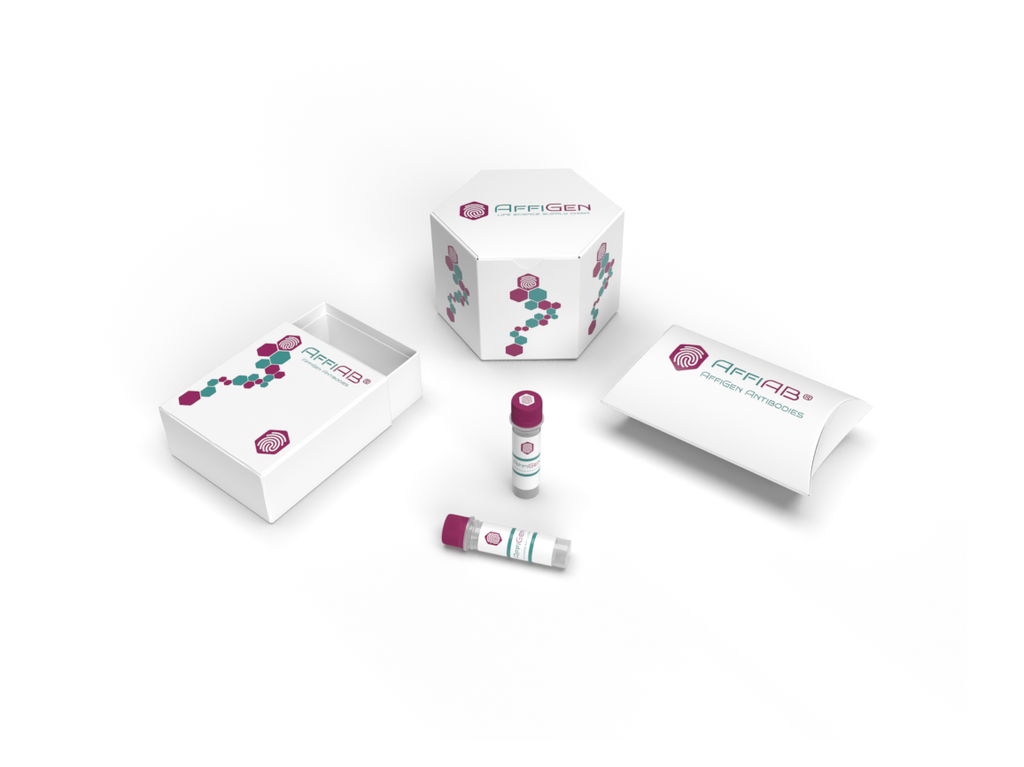AffiAB® Anti-PSMB2 Antibody
Non-catalytic component of the 20S core proteasome complex involved in the proteolytic degradation of most intracellular proteins. This complex plays numerous essential roles within the cell by associating with different regulatory particles. Associated with two 19S regulatory particles, forms the 26S proteasome and thus participates in the ATP-dependent degradation of ubiquitinated proteins. The 26S proteasome plays a key role in the maintenance of protein homeostasis by removing misfolded or damaged proteins that could impair cellular functions, and by removing proteins whose functions are no longer required. Associated with the PA200 or PA28, the 20S proteasome mediates ubiquitin-independent protein degradation. This type of proteolysis is required in several pathways including spermatogenesis (20S-PA200 complex) or generation of a subset of MHC class I-presented antigenic peptides (20S-PA28 complex) . The 26S proteasome consists of a 20S proteasome core and two 19S regulatory subunits. The 20S proteasome core is a barrel-shaped complex made of 28 subunits that are arranged in four stacked rings. The two outer rings are each formed by seven alpha subunits, and the two inner rings are formed by seven beta subunits. The proteolytic activity is exerted by three beta-subunits PSMB5, PSMB6 and PSMB7.
Antibody type
Rabbit polyclonal Antibody
Uniprot ID
SwissProt: P49721 Human
Recombinant
NO
Conjugation
Non-conjugated
Host
Rabbit
Isotype
IgG
Clone
N/A
KO/KD
N/A
Species reactivity
Human
Tested applications
WB, IHC-P
Predicted species reactivity
Mouse, Rat
Immunogen
Synthetic peptide within C-terminal human PSMB2.
Storage
Store at +4°C after thawing. Aliquot store at -20°C. Avoid repeated freeze / thaw cycles.
Form
Liquid
Storage buffer
PBS (pH7.4) , 0.1% BSA, 40% Glycerol. Preservative: 0.05% Sodium Azide.
Concentration
1.9 mg/ml
Purity
Immunogen affinity purified.
Signal pathway
N/A
Recommended dilutions
WB: 1:10, 000
; IHC-P: 1:2, 000-1:5, 000
Molecular Weight
Predicted band size: 23 kDa
Subcellular location
Cytoplasm, Nucleus.
Positive control
Jurkat cell lysate, 293T cell lysate, Hela cell lysate, CAL62 cell lysate, human colon tissue, human kidney tissue.
